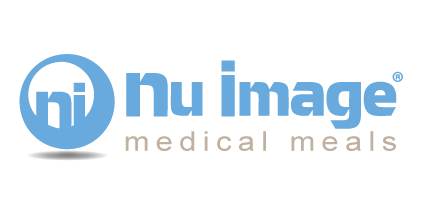Good Nutrition: 7 Things You Need to Know
Jan 6, 2009
March is National Nutrition Month, so let's take the opportunity to highlight the seven most important things you should know about nutrition for a healthy lifestyle.
1) Never skip breakfast
Research shows eating breakfast gives your body more energy. Also, you end up eating fewer calories later in the day if you have had breakfast. Choose a balanced breakfast with some protein, carbohydrate and a little fat. Good choices are an omelet or yogurt with whole-grain cereal.
2) Eliminate processed sugars
Processed sugars are carbohydrates that have been stripped of all their nutrients. They have very little fiber and have a tendency to make you hungrier as you eat them rather than satisfy your hunger. Choose carbohydrates that are whole grain and have at least 3 grams of fiber per serving.
3) Watch for portion size
Portions have doubled over the past 20 years, and so will your waistline if you are not careful! Measure your portions and use smaller plates and bowls to control portion size.
4) Eat at least 5 servings of fruits and vegetables daily
Fruits and vegetables are low-calorie foods full of nutrients and antioxidants that help fight off cancers and disease. The fiber in fruits and vegetables keeps us full longer. As a result we eat fewer calories.
5) Incorporate omega-3 fatty acids in your diet
Omega-3 fatty acids are beneficial for lowering your risk of heart disease. They do this by lowering blood cholesterol and triglyceride levels. Incorporate fatty fish like sardines, tuna and salmon at least twice a week or incorporate ground flax seeds daily to get the necessary supply of omega-3 in your diet.
6) Drink plenty of water
Drink plenty of fluids daily. These fluids should not include coffee and soda. Your body needs water to lubricate the joints, move nutrients around, and improve memory and concentration. Aim for at least eight 8-ounce glasses daily.
7) Add a vitamin D supplement daily
Very few food sources contain vitamin D and odds are that where you live does not provide enough sunshine to help your body manufacture vitamin D. If you do live in a sunny area, chances are you use sunscreen which also prevents vitamin D creation. A vitamin D deficiency can lead to bone loss, a compromised immune system, and an increased risk for breast, colon and prostate cancer. A supplement can help overcome your deficiency. The current recommendations are 1,000 IU (international units) of vitamin D daily for ages 1-65 and at least 2,000 IU for those 65 or older. Be careful you don’t overdo vitamin D since high levels can become toxic in your body. Consult with your physician before you add a supplement to your diet.
NOTE: National Nutrition Month is a nutrition education and information campaign sponsored annually by the American Dietetic Association. The campaign is designed to focus attention on the importance of making informed food choices and developing sound eating and physical activity habits. Initiated in March 1973 as a week-long event, "National Nutrition Week" became a month-long observance in 1980 in response to growing public interest in nutrition. For more information go to http://www.eatright.org/Public/content.aspx?id=11498
Diet-to-Go's registered dietitian Rebecca Mohning has a Master's degree in Exercise Physiology and a Bachelor of Science degree in Dietetics from Iowa State University. She is a certified Personal Trainer by the American College of Sports Medicine. She specializes in weight management, performance nutrition and eating disorders.
*** Diet-to-Go welcomes reproduction of its articles however the articles must be reused in their entirety and with the attribution "Reprinted Courtesy of www.DiettoGo.com"









